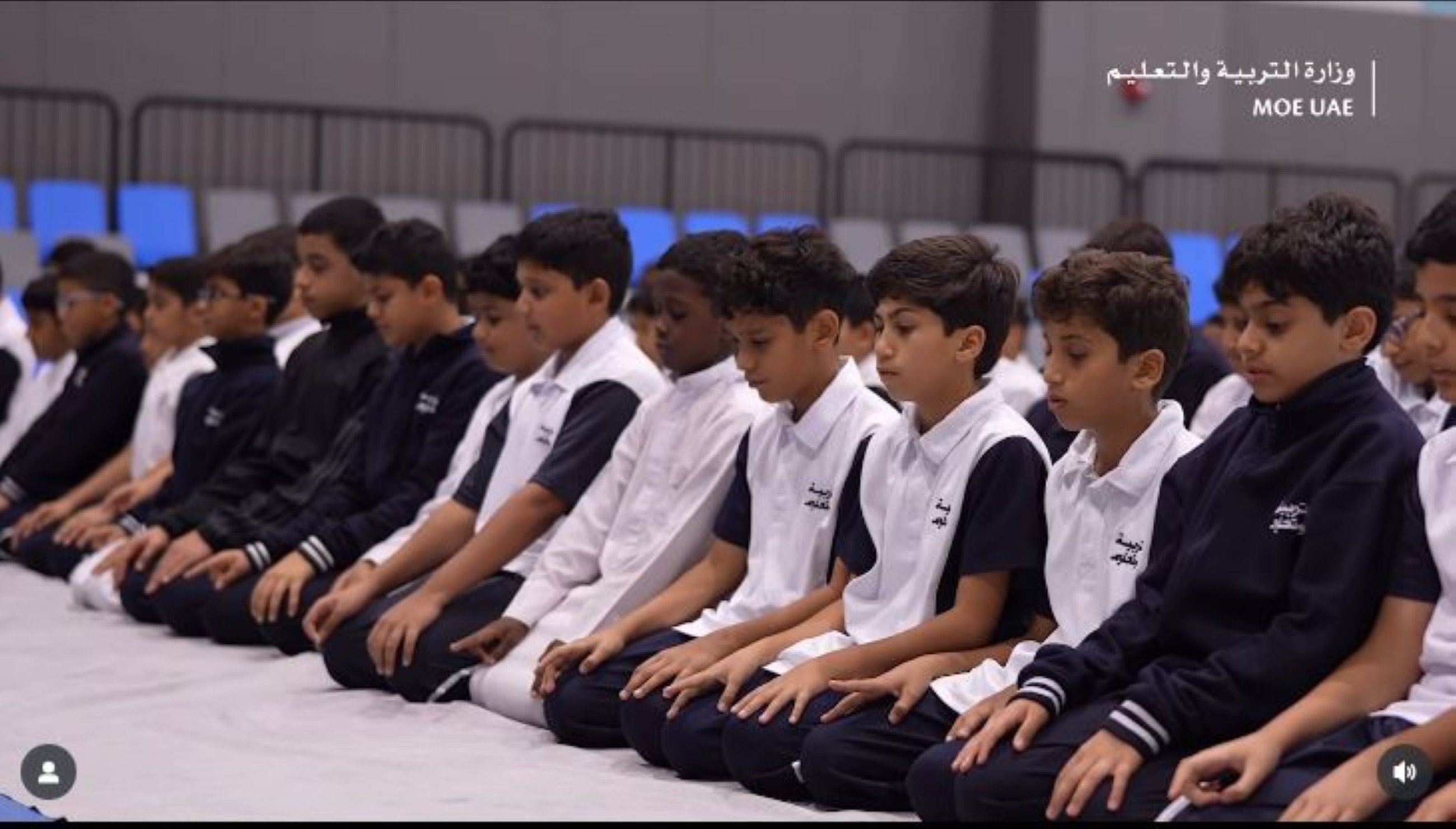In a significant development for educational institutions in the United Arab Emirates, the Ministry of Education (MoE) has declared the establishment of a daily congregational Dhuhr prayer across all public schools. This initiative marks a profound commitment not only to the integration of religious practices within the educational framework but also to the promotion of moral values alongside academic excellence. The announcement was made via the MoE’s official account on the X platform, emphasizing the dual role of schools as bastions of knowledge and centers for the cultivation of ethical and spiritual values.
The decision to incorporate a specific time for the Dhuhr prayer into the school day reflects the UAE’s broader cultural ethos, which values the interplay between faith and education. The move is seen as an attempt to nurture a holistic educational experience—wherein students are not only equipped with academic knowledge but also grounded in the ethical and moral tenets of their society. “Schools are a home for values as well as knowledge. Therefore, we have allocated a time for congregational Dhuhr prayer every day in all public schools,” the MoE stated, signifying a strategic intention to create a more inclusive and spiritually enriching environment for students.
The congregational Dhuhr prayer, which takes place at midday, can serve as a vital communal activity that fosters a sense of camaraderie and belonging among the students. Beyond merely fulfilling a religious obligation, this practice might encourage students to connect with one another and share in a common experience, thereby fostering a sense of unity and respect for their cultural heritage. In essence, the scheduled prayer time is poised to enhance notOnly the spiritual development of students but also the social fabric of school communities.
This initiative aligns with the UAE’s broader mission to create a well-rounded educational landscape, fostering both intellectual and moral growth. The integration of religious practices into the school environment underscores the government’s recognition of the role that education plays in shaping individual character and societal values. It is a testament to the UAE’s commitment to uphold its cultural and religious identity in a rapidly changing world, where globalization and modernization pose ongoing challenges to traditional values.
As educational institutions across the globe grapple with the implications of multiculturalism and the secularization of public life, the UAE’s approach stands out as a model for how schools can maintain cultural and spiritual connections while accommodating the demands of modern education. With a diverse demographic, the UAE is home to expatriates from various backgrounds, and incorporating Islamic practices in public schools while respecting the multicultural nature of the nation presents a delicate balancing act. The Ministry’s decision indicates a commitment to fostering an environment where students of all backgrounds can participate and respect the cultural practices that shape the UAE’s identity.
The implementation of daily Dhuhr prayers in schools may also resonate with parents and educators who believe that spiritual development is crucial in shaping responsible citizens. The emphasis on daily congregational prayer is expected to facilitate discussions about ethics, community service, and moral responsibilities—topics that are increasingly relevant in today’s society. It could lead to a more supportive atmosphere where students are encouraged to ask questions, engage in dialogue, and think critically about their beliefs and values.
Furthermore, this initiative may have broader implications for the educational landscape in the UAE. Schools that promote such practices could serve as models for integrating spiritual education into curricula, reinforcing the notion that academic achievement is more fulfilling when paired with personal and moral development. The impact of such policies on students’ behaviors and attitudes, especially in relation to respect, empathy, and community involvement, remains to be explored but holds promise for fostering a generation that values both knowledge and ethical conduct.
As the UAE continues to navigate the complexities of its evolving educational agenda, the Ministry of Education’s commitment to spiritual cultivation in public schools symbolizes an encouraging, intersectional approach to education—one that embodies the values of the nation while preparing youth for the globalized world.
In conclusion, the addition of a dedicated timeframe for the Dhuhr prayer within public schools reflects a thoughtful integration of faith into daily life, providing an example of how educational systems can approach moral and ethical development with seriousness and intent.
Tags: #EducationNews #PeopleCultureNews #UAE

